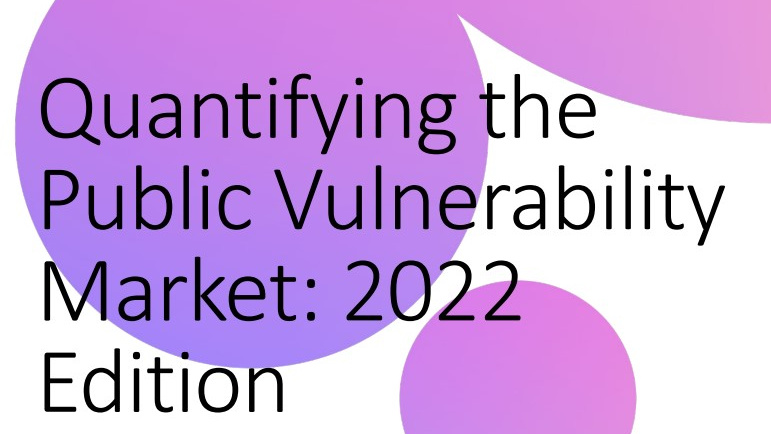The UK will face a category one attack in the future
The NCSC's boss says the UK has yet to see a major state-sponsored cyber attack, but it is coming


The National Cyber Security Centre (NCSC) has been thwarting more than 10 cyber threats per day, on average, according to its annual review, but it's still warning that something bigger is looming.
Despite preventing over 1,000 cyber attacks in its two-year history, the NCSC's CEO Ciaran Martin said that the UK will face a real test of its security infrastructure soon enough.
"Although the UK is making significant progress in improving our cybersecurity, that does not mean that we are getting everything right, or that the threat is abating," Martin said.
"Proof of that, if it were needed, is that in the two years of our existence the NCSC has dealt with well over 1,000 cyber security incidents.
"The majority of these incidents were, we believe, perpetrated from within nation states in some way hostile to the UK. They were undertaken by groups of computer hackers directed, sponsored or tolerated by the governments of those countries."
These groups constitute the most acute and direct cyber threat to the UK's national security, according to Martin.
"I remain in little doubt we will be tested to the full, as a centre, and as a nation, by a major incident at some point in the years ahead, what we would call a Category 1 attack."
Sign up today and you will receive a free copy of our Future Focus 2025 report - the leading guidance on AI, cybersecurity and other IT challenges as per 700+ senior executives
A category one attack is the most serious of six-levels of cyber attack classification, which is defined as an attack that causes sustained disruption of essential services or affects national security to the extent that it results in severe economic or social consequences or even loss of life. A category one attack is the only classification ministers and cabinet members must be strategically involved in.
According to the NCSC, there have been several very significant incidents, but the UK has avoided a Category one. However, some of its foremost international partners have not. A known example of a category one incident is the alleged assault on the US national elections in 2016 by Russian state-sponsored agents.
Earlier this year the NCSC published evidence of Russian pre-positioning on some of the UK's critical sectors, along with detailed technical guidance for business, but according to Martin, it's not just Russia the UK needs to worry about.
"These attacks have come from a range of states, as well as many non-state sources. There is much, much more to the cybersecurity threat to the UK than just Russia," he said.
Bobby Hellard is ITPro's Reviews Editor and has worked on CloudPro and ChannelPro since 2018. In his time at ITPro, Bobby has covered stories for all the major technology companies, such as Apple, Microsoft, Amazon and Facebook, and regularly attends industry-leading events such as AWS Re:Invent and Google Cloud Next.
Bobby mainly covers hardware reviews, but you will also recognize him as the face of many of our video reviews of laptops and smartphones.
-
 Foreign states ramp up cyberattacks on EU with AI-driven phishing and DDoS campaigns
Foreign states ramp up cyberattacks on EU with AI-driven phishing and DDoS campaignsNews ENISA warns of hacktivism, especially through DDoS attacks
-
 A new 'top-tier' Chinese espionage group is stealing sensitive data
A new 'top-tier' Chinese espionage group is stealing sensitive datanews Phantom Taurus has been operating for two years and uses custom-built malware to maintain long-term access to critical targets
-
 ‘States don’t do hacking for fun’: NCSC expert urges businesses to follow geopolitics as defensive strategy
‘States don’t do hacking for fun’: NCSC expert urges businesses to follow geopolitics as defensive strategyNews Paul Chichester, director of operations at the UK’s National Cyber Security Centre, urged businesses to keep closer tabs on geopolitical events to gauge potential cyber threats.
-
 Three ways to evolve your security operations
Three ways to evolve your security operationsWhitepaper Why current approaches aren’t working
-
 Beat cyber criminals at their own game
Beat cyber criminals at their own gameWhitepaper A guide to winning the vulnerability race and protection your organization
-
 Quantifying the public vulnerability market: 2022 edition
Quantifying the public vulnerability market: 2022 editionWhitepaper An analysis of vulnerability disclosures, impact severity, and product analysis
-
 Same cyberthreat, different story
Same cyberthreat, different storyWhitepaper How security, risk, and technology asset management teams collaborate to easily manage vulnerabilities
-
 Business value of ServiceNow security operations
Business value of ServiceNow security operationsWhitepaper Experience transformational gains from automating workflows and data-sharing among IT, security, and risk teams to rapidly remediate threats


